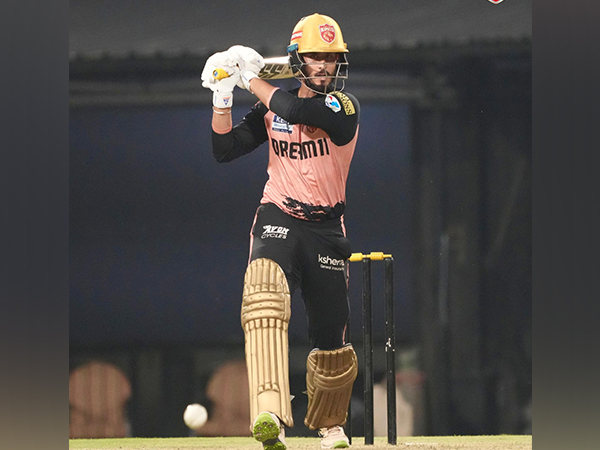Organisers announce Covid-19 countermeasures for Tokyo Olympics
Apr 28, 2021

Lausanne [Switzerland], April 28 : The International Olympic Committee (IOC), the International Paralympic Committee (IPC), the Tokyo Organising Committee of the Olympic and Paralympic Games (Tokyo 2020), the Tokyo Metropolitan Government and the Government of Japan on Wednesday agreed on measures to ensure the safe organisation of the Games.
The five parties will continue to deploy all possible COVID-19 countermeasures and place the highest priority on safety for the sake of all participants, including the athletes, and the Japanese public who will be playing host to the Games.
According to the latest countermeasures, athletes participating in the Tokyo Olympics are "required to take two COVID-19 tests before their flight to Japan".
Athletes will be tested daily for three days after arriving in Japan and after that too they will be tested regularly.
"In principle, athletes and all those in close proximity with athletes will be tested daily to minimise the risk of undetected positive cases that could transmit the virus. The dates and times will be set in line with the sports events and schedule," read a joint statement released by the five parties involved with the Olympics.
"All other Games participants will be tested daily for three days after their arrival. After the first three days and throughout their stay, they will be tested regularly, based on the operational nature of their role and level of contact with athletes.
"All Games participants must, in principle, only follow the activities they have outlined in their activity plan. They must minimise contact within one metre of Games participants who have already been in Japan for more than 14 days, and Japanese residents," it added.
Athletes are not allowed to use public transport and they will be permitted to eat at designated areas only.
"All Games participants must, in principle, exclusively use dedicated Games vehicles, and they are not allowed to use public transport," the statement further read.
"All Games participants must, in principle, eat only in the limited locations where COVID-19 countermeasures are in place, including catering facilities at Games venues, their accommodation's restaurant, and their rooms, using room service or food delivery.
"Close contacts are defined as those who have prolonged contact (for 15 minutes or more) with a person who has a confirmed positive COVID-19 test, within one metre, without wearing a face mask. This is particularly applicable when such contact happens in enclosed spaces such as hotel rooms or vehicles. Cases will be confirmed by the Japanese health authorities," it added.
The Playbooks have been developed based on science, benefiting from learnings gathered during the evolution of the COVID-19 pandemic. In addition to implementing the most effective tools being used throughout society, such as mask-wearing, personal hygiene and physical distancing, they also draw upon the experience of hundreds of sports events that have taken place across the world during the pandemic, which have been held safely, with minimal risk to participants and the local population.
They are based on the ongoing work of the All Partners Task Force, which includes the Government of Japan, the Tokyo Metropolitan Government, the Tokyo 2020 Organising Committee, the IOC, IPC, World Health Organization and independent experts and organisations from across the world. A third version of the Playbooks is expected to be published in June. As with all the previous versions, it will take the latest scientific developments into consideration.
The organisers are committed to host safe and secure Games for all participants and the Japanese people. The call on spectators will be made in June "in line with the government's general guidance concerning the upper limit of spectator capacity in sports events".
"As we look into the evolving situation with the domestic infections status involving new strains, we have agreed that a decision regarding spectator capacity at the Olympic and Paralympic venues will be made in June, in line with the government's general guidance concerning the upper limit of spectator capacity in sports events. This follows the significant decision in March, when the IOC and IPC were informed about the conclusion of the Japanese parties not to allow entry into Japan for overseas spectators for the Olympic and Paralympic Games Tokyo 2020 due to the prevailing worldwide COVID-19 pandemic," the statement stated.
"Meanwhile, the IOC, the IPC and Tokyo 2020 continue to work on optimising the number of participants attending the Olympic and Paralympic Games Tokyo 2020," it added.
Tokyo Olympics, initially to be held in 2020, will be held from July 23-August 8 this year.



















